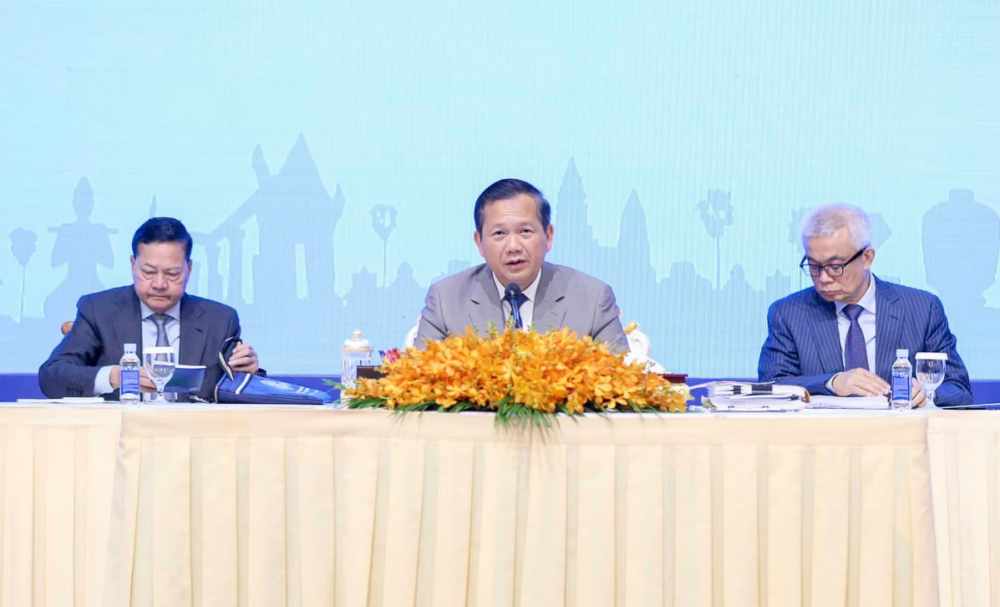Phnom Penh, March 18 (AseanAll) —The Royal Government of Cambodia has outlined its path towards achieving the country’s Vision 2050 through the commitment to continuously improve public service delivery by bringing government closer to the people through decentralisation and deconcentration reforms.
The commitment was underscored during the first Forum between the Royal Government and Sub-National Administrations on “Decentralisation and Deconcentration Reforms to Achieve Cambodia’s Vision 2025,” organised by the National Committee for Sub-National Democratic Development (NCDD) at Sokha Phnom Penh Hotel and via Zoom on March 18, 2025 under the chairmanship of Prime Minister Hun Manet.

Aphi Santepundit Sar Sokha, Cambodian Deputy Prime Minister and Minister of the Interior, stated that this event aimed to jointly assess the progress and challenges of implementing decentralisation and deconcentration reform policies in order to have a clearer basis for continuing to strengthen the preparation and implementation of reforms more effectively, contributing to the implementation of the Pentagonal Strategy - Phase 1 and the six priority policy programmes, ultimately supporting Cambodia's vision of becoming a high-income country by 2050.
In the forum, Hun Manet directly moderated the discussion which highlighted the opportunities and challenges faced by sub-national administrations officials in order to further achieve their goals.
The Royal Government of Cambodia has created the NCDD on Dec. 31, 2008. It is an inter-ministry mechanism to support democratic development through decentralisation and deconcentration reforms in Cambodia.
Since its inception, despite some challenges, the NCDD has coordinated and led the implementation of the law on administrative management of capital, provinces, municipalities, districts, and khans.